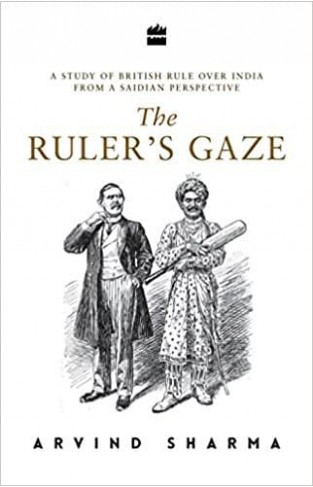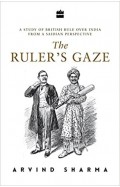- Home
- Books
- Sale
- BOOKLOVERS FRIDAY UPTO 85% OFF
- 50% OFF
- The Ruler's Gaze : A Study of British Rule over India from a Saidian Perspective
The Ruler's Gaze : A Study of British Rule over India from a Saidian Perspective
By: Arvind Sharma
-
Rs 697.50
- Rs 1,395.00
- 50%
You save Rs 697.50.
Due to constant currency fluctuation, prices are subject to change with or without notice.
Edward Said's Orientalism (1978) is a seminal work in the field of postcolonial culture studies. It critiqued Western scholarship about the Eastern world for its patronizing attitude and tendency to view it as exotic, backward and uncivilized. Arvind Sharma, longstanding professor of comparative religion at McGill University in Montreal, Canada, now takes up the Palestinian academic’s groundbreaking ideas – originally put forth predominantly in a Middle Eastern context – and tests them against Indian material. He explores in an Indian context Said’s contention that the relationship between knowledge and power is central to the way the West depicts the non-West. Scholarly and accessible, The Ruler’s Gaze throws fresh light on Indian colonial history through a Saidian lens.
| Book | |
| What's in the Box? | 1 x The Ruler's Gaze : A Study of British Rule over India from a Saidian Perspective |
Edward Said's Orientalism (1978) is a seminal work in the field of postcolonial culture studies. It critiqued Western scholarship about the Eastern world for its patronizing attitude and tendency to view it as exotic, backward and uncivilized. Arvind Sharma, longstanding professor of comparative religion at McGill University in Montreal, Canada, now takes up the Palestinian academic’s groundbreaking ideas – originally put forth predominantly in a Middle Eastern context – and tests them against Indian material. He explores in an Indian context Said’s contention that the relationship between knowledge and power is central to the way the West depicts the non-West. Scholarly and accessible, The Ruler’s Gaze throws fresh light on Indian colonial history through a Saidian lens.
The Ruler's Gaze : A Study of British Rule over India from a Saidian Perspective
By: Arvind Sharma
Rs 697.50 Rs 1,395.00 Ex Tax :Rs 697.50
Zubin Mehta: A Musical Journey (An Authorized Biography)
By: VOID - Bakhtiar K. Dadabhoy
Rs 525.00 Rs 1,050.00 Ex Tax :Rs 525.00
The Origins of Political Order From Prehuman Times to the French RevolutioN
By: Francis Fukuyama
Rs 3,505.50 Rs 3,895.00 Ex Tax :Rs 3,505.50
Manning Up: How the Rise of Women Has Turned Men into Boys
By: Kay Hymowitz
Rs 746.25 Rs 995.00 Ex Tax :Rs 746.25
The Obama Syndrome: Surrender At Home War Abroad
By: Tariq Ali
Rs 1,165.50 Rs 1,295.00 Ex Tax :Rs 1,165.50
The Quest For Meaning: Developing A Philosophy Of Pluralism
By: Tariq Ramadan
Rs 1,185.75 Rs 1,395.00 Ex Tax :Rs 1,185.75
The Pakistan US Conundrum Jihadists The Military And The People The Struggle For Control
By: Yunas Samad
Rs 1,185.75 Rs 1,395.00 Ex Tax :Rs 1,185.75
An Enemy We Created: The Myth Of The Taliban Al Qaeda Merger In Afghanistan 19702010
By: Alex Strick van Linschoten
Rs 3,937.50 Rs 5,250.00 Ex Tax :Rs 3,937.50
WikiLeaks: Inside Julian Assanges War on Secrecy
By: David Leigh & Luke Harding
Rs 637.50 Rs 850.00 Ex Tax :Rs 637.50
No similar books from this author available at the moment.
No recently viewed books available at the moment.
Zubin Mehta: A Musical Journey (An Authorized Biography)
By: VOID - Bakhtiar K. Dadabhoy
Rs 525.00 Rs 1,050.00 Ex Tax :Rs 525.00
The Ruler's Gaze : A Study of British Rule over India from a Saidian Perspective
By: Arvind Sharma
Rs 697.50 Rs 1,395.00 Ex Tax :Rs 697.50













-120x187.jpg?q6)





-120x187.jpg?q6)



-120x187.jpg?q6)



